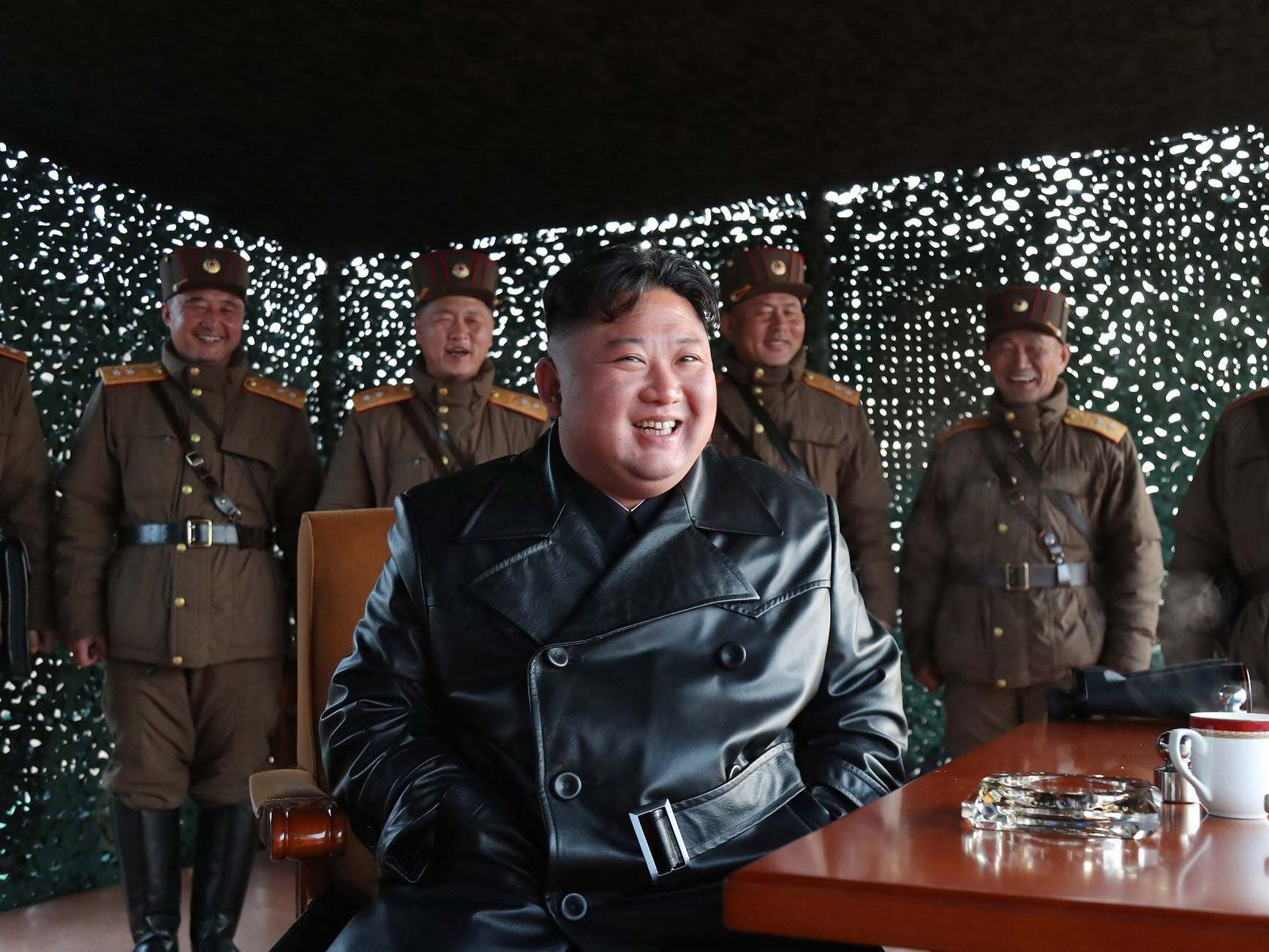North Korea says ‘not one single person’ has caught coronavirus – but can we trust its numbers?
While the public statements from its officials say one thing, North Korea’s actions point to another reality, writes Adam Withnall


North Korea has insisted that not one person in the country has been infected with coronavirus, despite mounting evidence to the contrary and an outright dismissal of the claim by US forces in South Korea.
If Pyongyang’s claims were true, it would put the country – which has large land borders with both China and South Korea, two of the world’s worst-affected countries – among a handful of the world’s most isolated nations yet to have received a Covid-19 case.
Experts on North Korea say it would be highly unlikely for the country to have escaped the coronavirus pandemic completely unscathed, although it did act very early and decisively in sealing its borders.
The latest claim from Pyongyang came via an interview with the AFP news agency given by Pak Myong Su, director of North Korea’s central emergency anti-epidemic headquarters.
He told the agency that “not one single person has been infected with the novel coronavirus in our country so far”, and credited “preemptive and scientific measures such as inspections and quarantine for all personnel entering our country and thoroughly disinfecting all goods, as well as closing borders and blocking sea and air lanes”.
Mr Pak made a similar assertion on 25 March, saying that “fortunately” the country had not suffered a single infection. It follows the country’s leader, Kim Jong-un, telling top party officials on 1 March that “in case the infectious disease spreading beyond control finds its way into our country, it will entail serious consequences”.
While the public statements from its officials say one thing, North Korea’s actions point to another reality. The country has repeatedly requested growing amounts of medical supplies from its allies and international aid agencies during the pandemic, prompting the UN to offer sanctions relief for key items like personal protective equipment.
Russia’s foreign ministry said in February the country had provided North Korea with 1,500 testing kits, at Pyongyang’s request, due to “the persisting risk of new Covid-19”.
Around 380 foreigners – mostly diplomats – were quarantined for weeks in Pyongyang, with the restrictions finally lifted at the start of March. Russia’s ambassador to the country, Alexander Matsegora, described the conditions as “morally crushing” as many were evacuated after the lockdown ended.
North Korea’s own citizens have also been subject to quarantines – as many as 10,000 of them, according to one report by the specialist news website NK News.
And the North’s military was also completely locked down, with parades cancelled and troops kept to their barracks, for 30 days in February and March.
General Robert Abrams, the top American commander in South Korea, said the North “took draconian measures at their border crossings and inside their formations to do exactly what everybody else is doing, which is to stop the spread”.
In a joint VOA News and CNN interview, he said categorically that it was “untrue” to say North Korean hadn’t had a single coronavirus case. “I can tell you that is an impossible claim based on all of the intel that we have seen,” he said. Donald Trump, the US president, has previously said North Korea is “going through something” and offered his support in a letter to Mr Kim, without stating his reasons for believing so.
Dr Hoo Chiew Ping, a North Korea specialist and a senior lecturer in strategic studies and international relations at the National University of Malaysia, said there were clearly “contradictions in [Pyongyang’s] official statements, swinging from ‘we need medical assistance on this pandemic’ to ‘[we have] no positive cases’”.
“Their message to the WHO for medical supplies should be taken seriously as a real signal calling for help,” she told The Independent.
While the rest of the world is far removed from business as usual, North Korea has surprised many by continuing to launch provocative short-range missile tests into the sea towards Japan.
South Korea called the two launches last week “deeply inappropriate” given the pandemic situation, but otherwise the international response was muted, with Mr Trump replying “no comment” when asked about them in Washington.
Leif-Eric Easley, a professor at Ewha University in Seoul, told The Independent that the possibility of a coronavirus outbreak had “increased North Korea’s isolation and unpredictability”.
“There will be greater risk of military miscalculation if the North Korean army suffers extensive losses from the virus, or if Washington and Seoul’s alliance readiness is degraded,” he said. “Pyongyang could make a more aggressive provocation before elections in South Korea and the United States, either to deflect attention from its own weaknesses, or to take advantage of weaknesses it perceives among other governments that are focused on the coronavirus and domestic politics.”
Dr Hoo said the missile test was an attempt by Pyongyang “to signal that Kim Jong-un is not concerned about the virus outbreak and to showcase his confidence that there are indeed zero cases in DPRK”. Images in North Korean state media showed Mr Kim presiding over the launch without his face covered by a mask, while all other recent propaganda visuals have shown his officials wearing them.
Regardless of the reality on the ground, North Korea’s official narrative has reached the point where the country is unlikely to ever admit to any cases.
“The state has put a lot of stock into its response and there has been so much propaganda about how well they’re doing,” Oliver Hotham, managing editor of NK News, told the BBC. “I think for them to admit now that there were cases is essentially to admit defeat.”
Join our commenting forum
Join thought-provoking conversations, follow other Independent readers and see their replies
0Comments